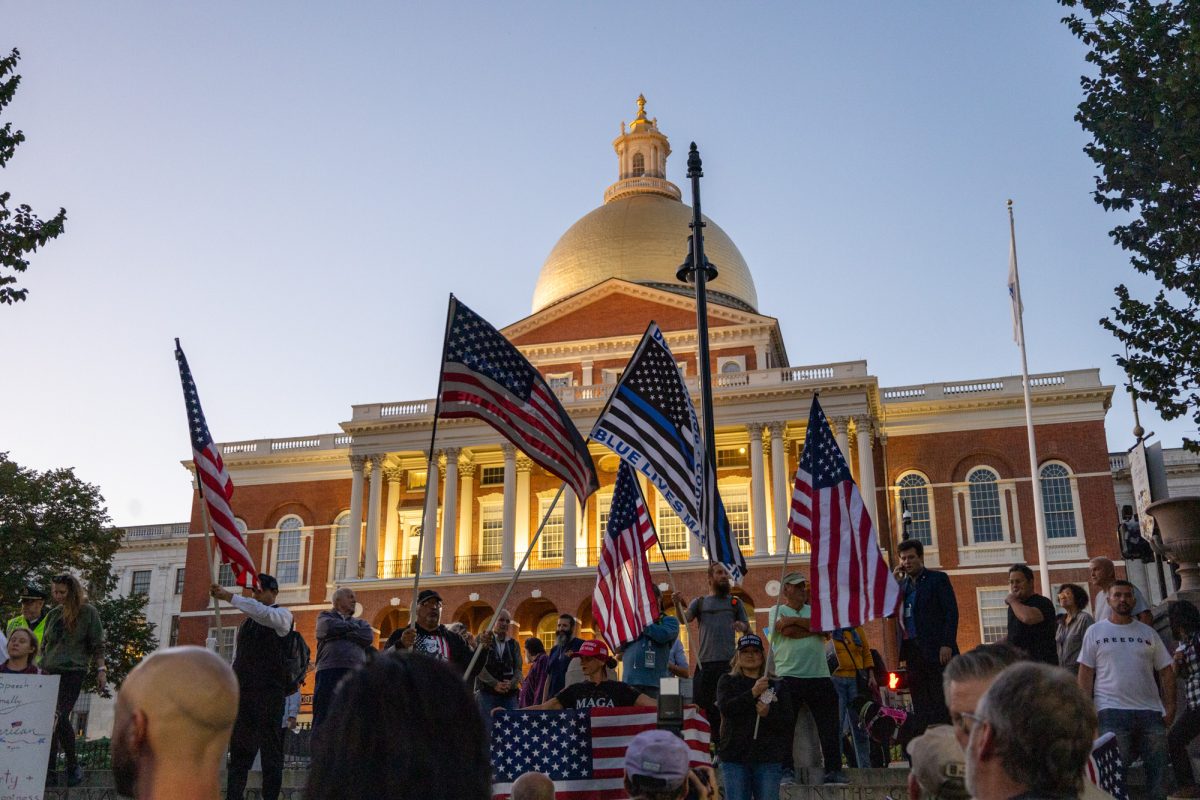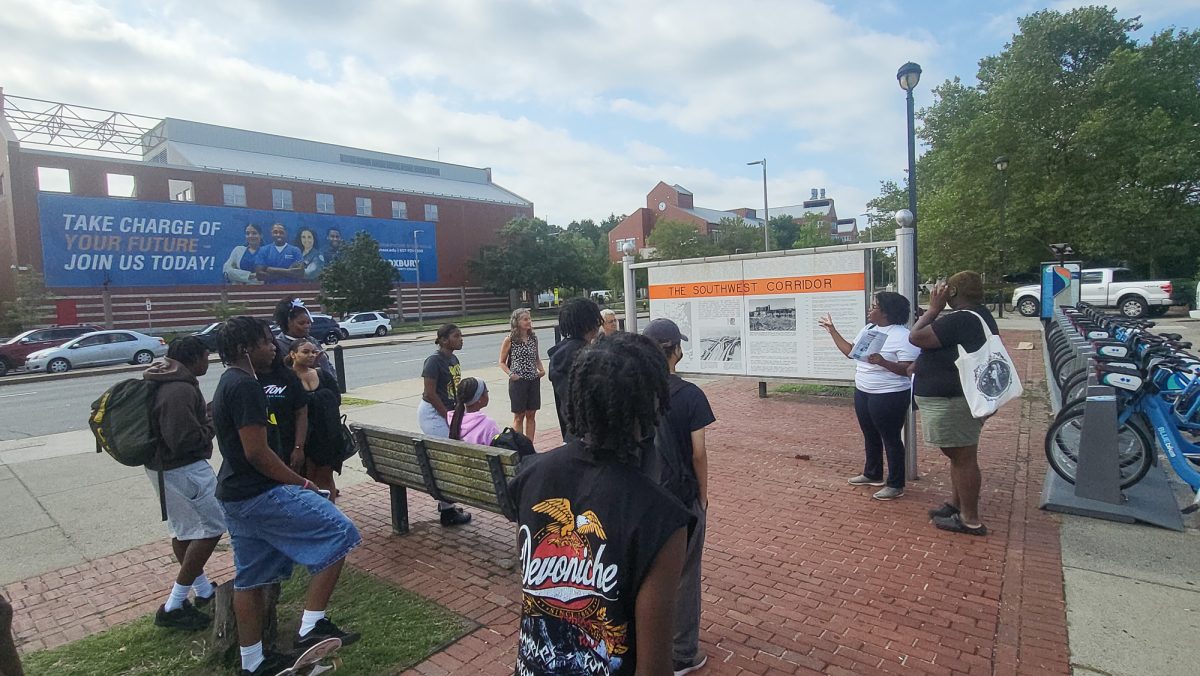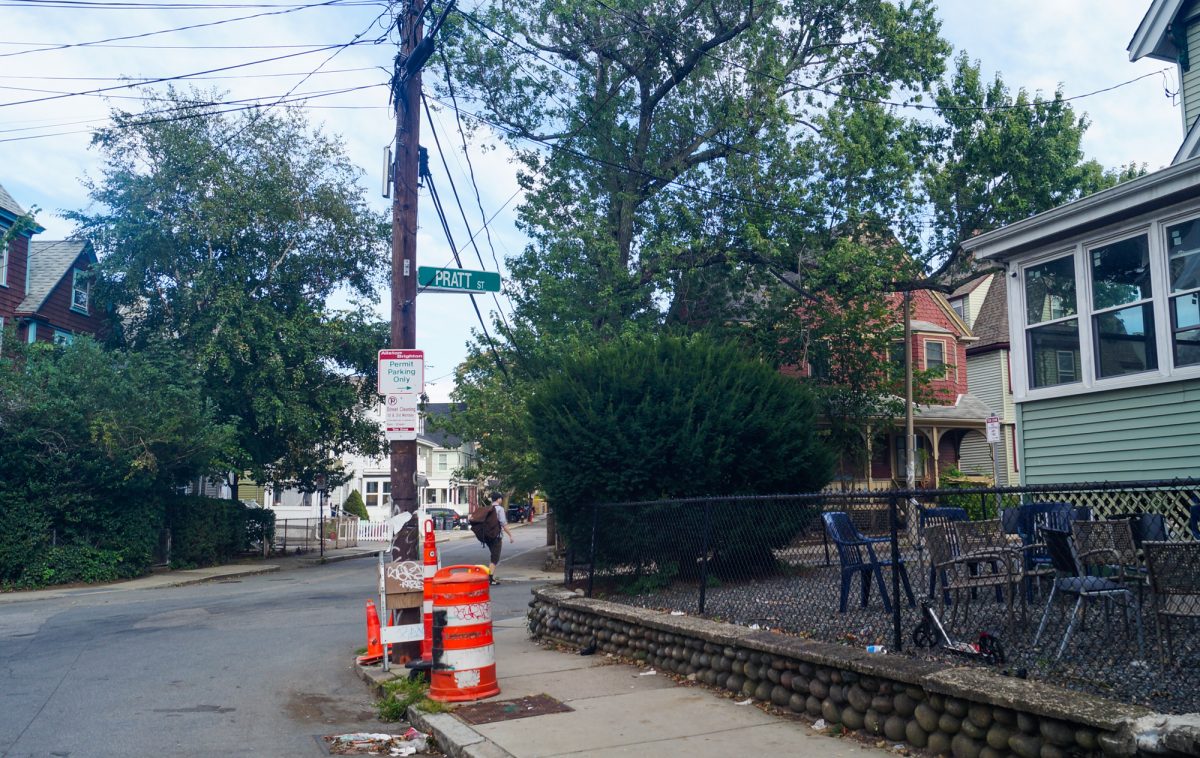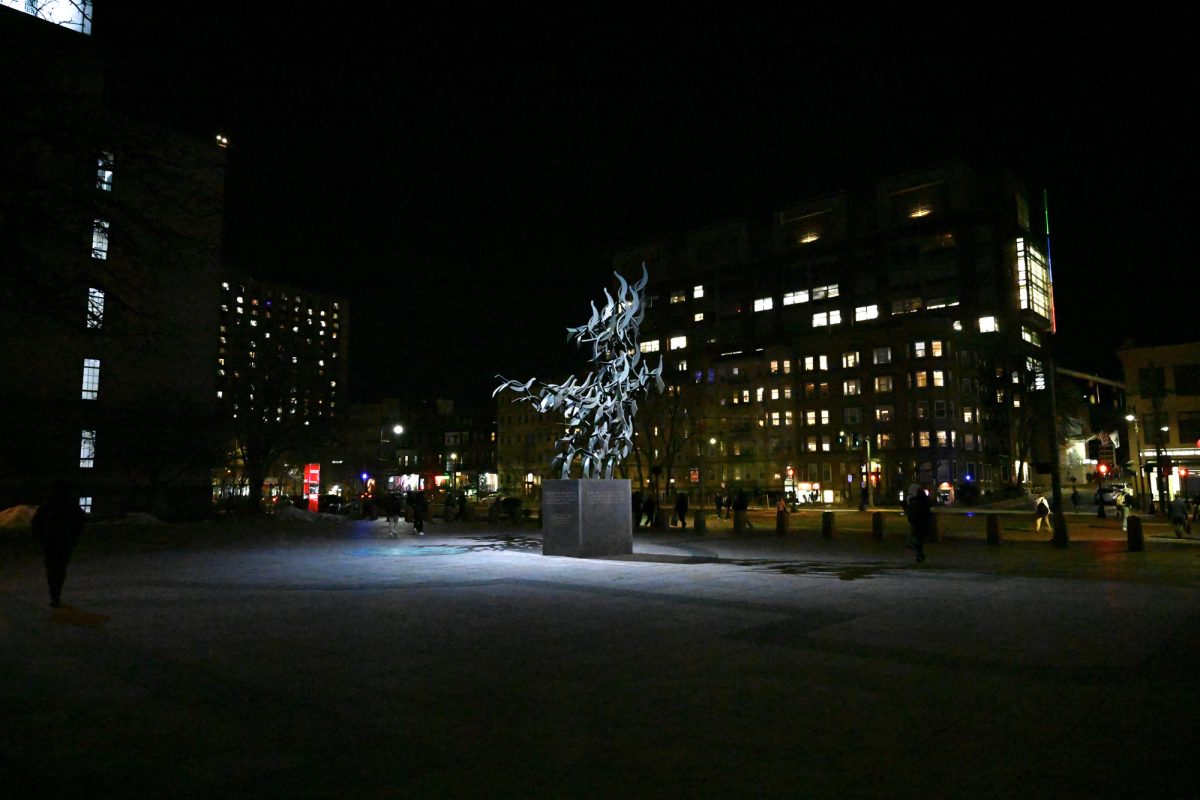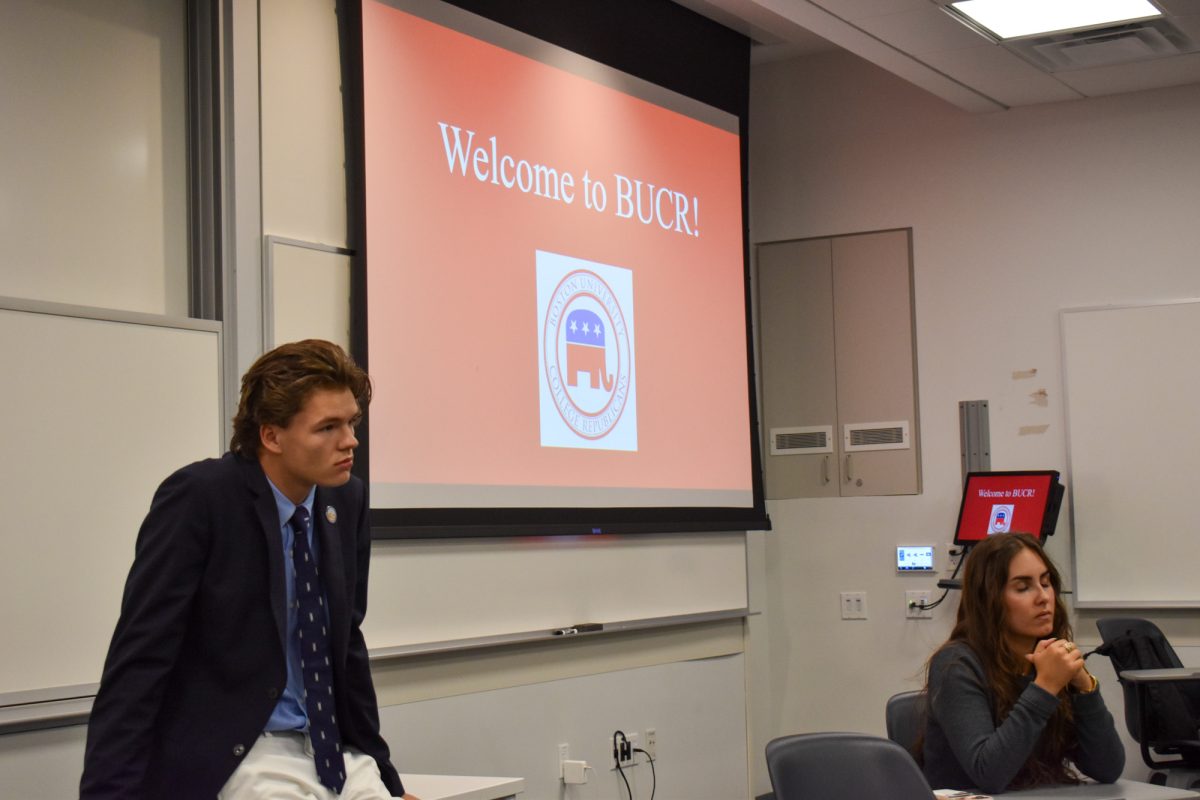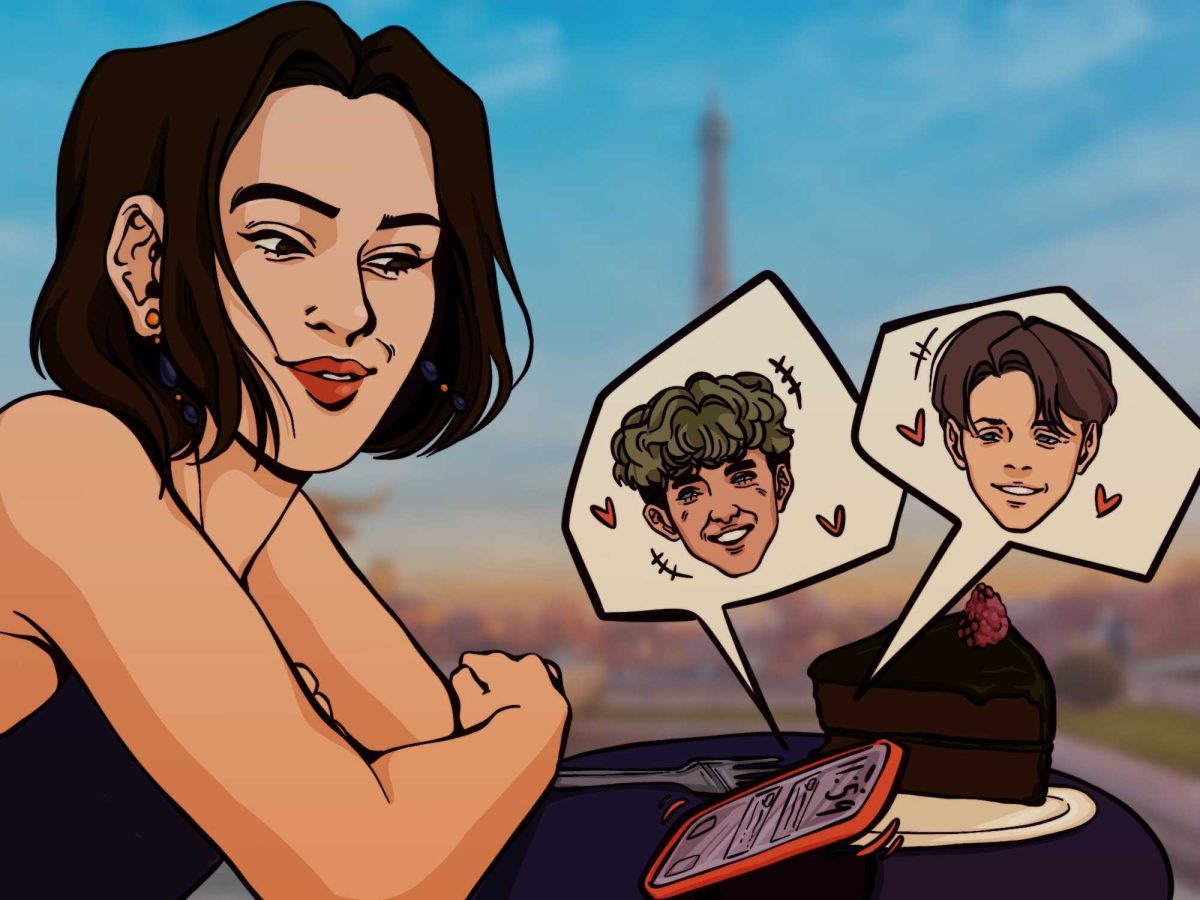Boston University students are hoping to bring their creative vision to life with a new, daring short film.
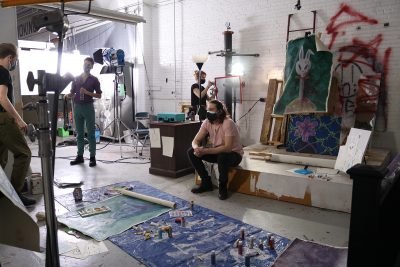
BU College of Communication seniors banded together to create “Wonderland” — a short film highlighting themes such as mental illness, self-doubt and art — this winter, after the project was initially interrupted last spring.
The film came about in a Production II class a year ago, where writer, director and COM senior Dilara Avgen’s movie idea about a girl who “couldn’t tell from reality and dreams” was selected to be made into a final project after Spring Recess.
“Last March when we were all at home, I’m like ‘this project is dead,’” Avgen said. “I’m really happy that we’re at this stage right now.”
Avgen said the group wasn’t ready to abandon the project — nor the opportunity to create something meaningful before graduation — once the class ended.
Limited by BU’s production path, Avgen said the group chose to make the project their own and produce “Wonderland” by themselves.
“I was not ready to let go of this project,” Avgen said. “After we graduate … probably we’re not going to be directors or producers right away, so we all kind of needed this.”
The film was made independently of BU, meaning all equipment and money was outsourced using a crowdfunding campaign. This gave the group more freedom creatively, while still being COVID-19 conscious.
Making the film come to life quickly became a kind of “senior thesis” for the group — one that tested their skills, but solidified their artistic journeys forward, Avgen said.
“We rely on this project a lot to see what we are capable of,” Avgen said. “As artists ourselves, we question ourselves a lot like, if our work matters, if it’s good.”
“Wonderland” follows “Alice,” a self-critical artist who has been painting the white rabbit for an exhibition, played by College of Fine Arts student Emma Kuhlman. The film centers around a therapist session Alice is forced to attend, with flashbacks and hallucinations throughout “as if it was a glitch in her reality,” Avgen said.
The film, in name and character, references the classic Walt Disney animated film, “Alice in Wonderland” — Avgen said the group tried to use elements from the 1951 classic sparingly, but creatively. She also said she drew inspiration from Vincent van Gogh.
“I like to think about it as a modern telling of the Van Gogh story,” she said. “You have this mental illness, but you also want to be this great artist, and how far are you willing to go to be that special person.”
BU seniors made up about 90 percent of Wonderland’s crew, with CFA students as actors. “Dr. Kim,” played by Kimberley Fogelgren — an actress based in Beverly, Massachusetts — was a notable exception.
Hours of work and meetings — including on Christmas Day — finally culminated into shooting during Presidents’ Day weekend, when the group wrapped production.
Head producer and COM senior Mallika Walavalkar said the group hopes to complete post-production within three weeks, and is considering film festivals they can submit their work to.
“This is just the first step for us,” she said. “We were able to independently employ all the skills that we’ve been taught.”
For instance, Walavalkar said she and the associate producer, COM senior Devon Mikaniewicz, used the skills they gained in a crowdfunding class to launch Wonderland’s $5,000 campaign.
“It was really just rewarding to see that what we had learned was already being used,” Mikaniewicz said, “and being so successful with that.”
Their campaign was completed when their professor, Amy Geller, donated the last $55 of their goal — a “sentimental” moment for Walavalkar, she said.
Avgen said she used simplicity in her work — something she learned in her classes.
“One thing we learned from BU is the basics of storytelling,” she said. “You don’t need those crazy drones or steady cams or stuff like that to tell a good story.”
Walavalkar said the film’s theme of mental health specifically took on a new meaning during the pandemic, which made working on the film particularly important to her.
“Mental health took a tank for so many people during this pandemic,” Walavalkar said. “Engaging with themes like this and working with a group of people who are on the same page about creating something during a pandemic was … really powerful.”
Avgen said she hopes the film’s exploration of burnout and self-doubt can strike a chord with the audience when it is released — especially with other young adults.
“Even if you’re not an artist, this feeling of burning out, the feeling of not feeling that you’re special, the feeling like you’re not going to matter,” she said, “watching this film, maybe it helps you understand … just you being there makes you special.”

